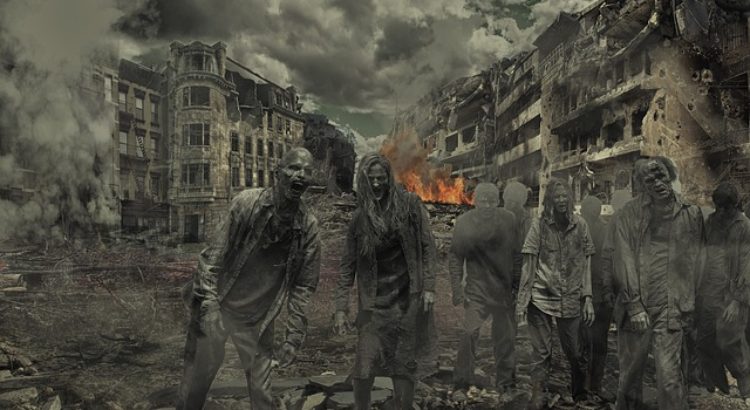North America/USA/27-10-2019/Author(a): Sofía García-Bullé/Source: observatory.tec.mx
By: Sofía García-Bullé
To escape a zombie apocalypse, one has to have notions of geography.
Teaching geography is not easy. In previous articles we have covered the issue of the silent crisis of geographic illiteracy, especially when there is a growing need for professionals who can perform in fields of work where geographic knowledge is important. Geographic educational programs face a major challenge in keeping students motivated to learn hard data like country names, states, capitals, and resources that each has.
David Hunter, a geography teacher in Seattle, Washington (USA), might have found the key to capturing the interest of the students in the subject through a survival game. Hunter’s two greatest passions are things that would not normally come together, but with the right approach, they could become a creative educational strategy never before seen.
Outside the classroom, the teacher is a loyal follower of zombie fiction. Movies, series, video games, anything that has any version of the undead in its content is eagerly consumed by the professor. However, his pastime never mingled with his teaching side until he wondered, for fun, where he would flee in the event of a zombie apocalypse and why. How would it be located? What resources would the places have for them to be attractive to a group of people fleeing monsters in search of their brains?
«When I started with zombie-based learning, I wanted to create a meaningful example of how you can teach creatively still using established standards,»
It was then that he realized that the narrative of a zombie epidemic would be an excellent platform for teaching his students the value of a sense of direction and the places they can discover and map with it. «When I started with zombie-based learning, I wanted to create a meaningful example of how you can teach creatively still using established standards,» explains Hunter.
Hunter’s main goal was to get the attention and motivation of typically apathetic students. He used gamification elements to challenge his students to develop escape strategies, contingencies, and selections of places for possible refuge and reconstruction under a fictional narrative about a zombie apocalypse.
This narrative is developed in a graphic novel written by Hunter himself to fulfill the purpose of a friendlier textbook. The teacher was concerned about having written documents and resources that he could share with other teachers who might like to apply this method to revitalize geography classes or adapt it to other environments of gamification and project-based learning.
The principal advantage of Hunter’s project is that it allows students to apply geographic knowledge in a practical situation. Not only are they memorizing data, they are applying what they have learned to solve problems that are fictional, but also concrete and which provide an element of entertainment. Importantly, an intriguing scheme of gamification is one that provides immediate feedback and gratification while the narrative or storytelling behind it keeps students interested. This lengthens the useful life of the project, allowing it to be used throughout its time or with different classes, without losing its effectiveness.
If you want to know more about the bases and applications of gamification, check out our Edu Trends report that delves into this attractive educational trend.
Source of information: https://observatory.tec.mx/edu-news/zombie-based-learning
Image: ahmadreza heidaripoor en Pixabay







 Users Today : 92
Users Today : 92 Total Users : 35404570
Total Users : 35404570 Views Today : 110
Views Today : 110 Total views : 3334150
Total views : 3334150